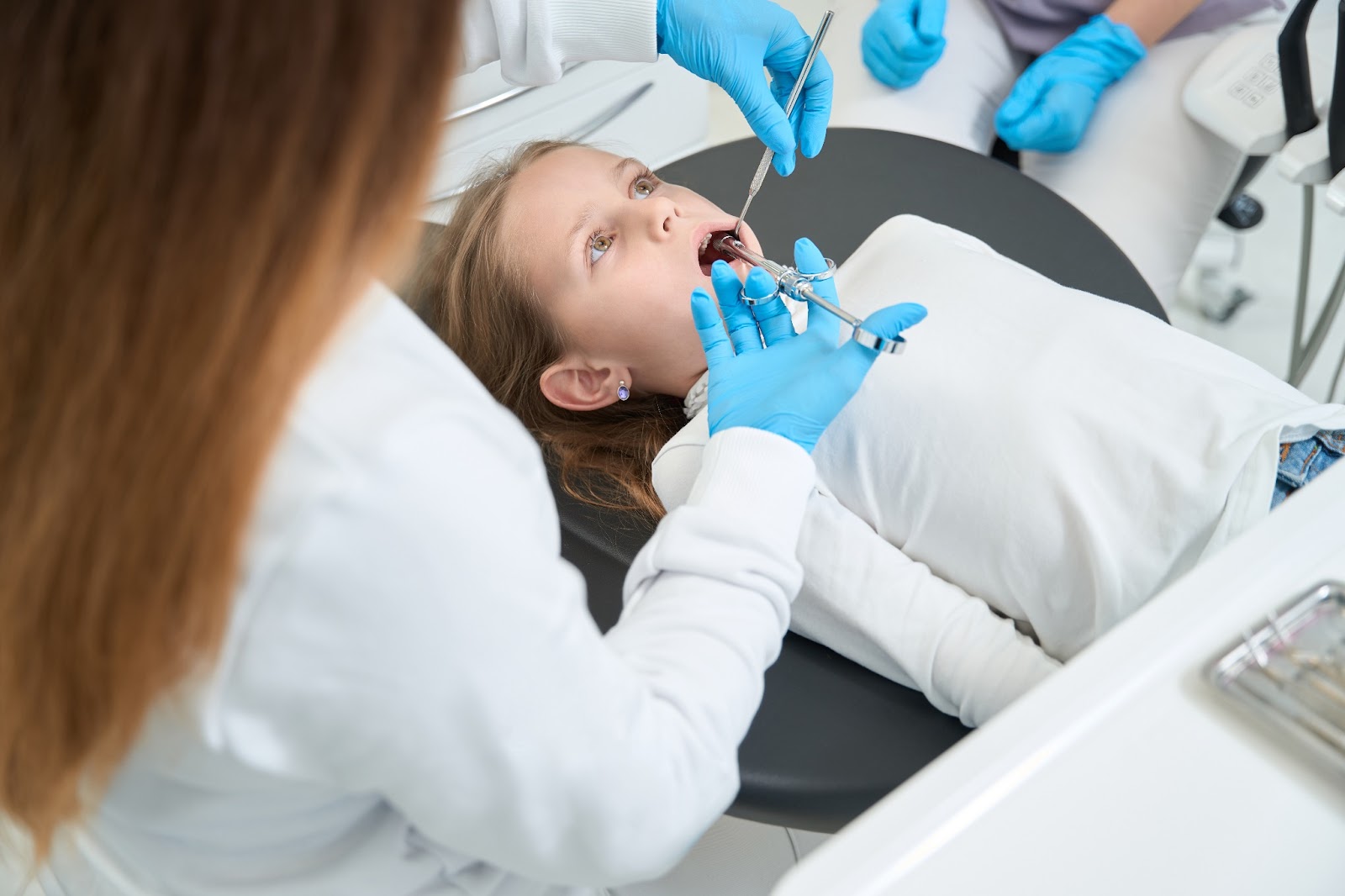How to Find the Children’s dental specialist and What to Consider
How to Find the Right Children's Dental Specialist: What to Consider

Choosing a dental specialist for your child can feel like navigating a labyrinth of options, opinions, and information. It's a significant decision that impacts not only your child's dental health but also their comfort and perception of dental care. This comprehensive guide will help you find the right children's dental specialist and highlight what you need to consider during your search.
The information on this site is intended for general informational purposes only and is not a substitute for professional medical advice, diagnosis, or treatment. Medical knowledge is continuously evolving, so the content here may not always be current, complete, or comprehensive. Always consult your healthcare provider before starting or altering any treatment. In the event of a medical emergency, contact your doctor or dial 911 right away.
Why Choosing a Children's Dental Specialist is Important
A children's dental specialist, also known as a pediatric dentist, is specially trained to handle the unique dental needs of children. They possess the expertise to manage a child's dental development from infancy through adolescence, ensuring healthy teeth and gums along the way. Their training includes understanding child psychology, behavior management, and how to make dental visits a positive experience for young patients.
How to Find a Children's Dental Specialist
1. Ask for Recommendations
Word-of-mouth is one of the most reliable ways to find a good children's dental specialist. Ask friends, family members, or your child's pediatrician for recommendations. Personal experiences can provide valuable insights into the quality of care and the environment of the dental practice.
2. Check Professional Affiliations
Ensure that the dental specialist is affiliated with reputable organizations such as the American Academy of Pediatric Dentistry (AAPD) or the American Dental Association (ADA). Membership in these organizations indicates that the dentist is committed to ongoing education and adheres to high professional standards.
3. Read Online Reviews
Online reviews can offer a broader perspective on a dental practice. Websites like Yelp, Google Reviews, and Healthgrades can provide insights from other parents about their experiences with a particular children's dental specialist. Look for patterns in the reviews—consistently positive feedback can be a good indicator of quality care.
4. Visit the Practice
Before making a decision, visit the dental practice. A welcoming environment with friendly staff can make a significant difference in your child's comfort level. Check for a child-friendly waiting area, cleanliness, and whether the dental team seems approachable and patient.
What to Consider When Choosing a Children's Dental Specialist
1. Qualifications and Experience
Ensure that the dental specialist has the necessary qualifications and experience in pediatric dentistry. Look for credentials such as a Doctor of Dental Surgery (DDS) or Doctor of Dental Medicine (DMD) and additional training in pediatric dentistry.
2. Communication Skills
Effective communication is crucial when dealing with children. A good children's dental specialist should be able to explain procedures in a way that is understandable and reassuring for both you and your child. They should also be willing to answer any questions you have about your child's dental health.
3. Behavioral Management Techniques
Children can be anxious or fearful about dental visits. A skilled children's dental specialist will use behavioral management techniques to make the experience as stress-free as possible. This might include positive reinforcement, distraction methods, or even sedation for more anxious children.
4. Preventive Care Focus
A good children's dental specialist will emphasize preventive care, teaching your child good oral hygiene habits and providing treatments like fluoride applications and dental sealants to prevent cavities.
5. Emergency Care
Accidents happen, and dental emergencies can be particularly distressing. Ensure that the dental specialist offers emergency care or has a protocol for handling urgent dental issues outside of regular office hours.
6. Location and Accessibility
Consider the location of the dental practice. A conveniently located office can make regular visits easier and more manageable. Additionally, check if the practice is accessible for strollers or wheelchairs if needed.
7. Insurance and Payment Options
Dental care can be expensive, so it's essential to understand what insurance plans the practice accepts and what payment options are available. Some practices offer payment plans or accept CareCredit, which can help manage costs.
8. Office Hours
Flexible office hours can be a significant advantage, especially if you have a busy schedule. Check if the dental practice offers evening or weekend appointments.

FAQs About Children's Dental Specialists
1. What is a pediatric dentist?
A pediatric dentist is a dental specialist who has completed additional training in the dental care of children from infancy through adolescence.
2. At what age should my child first see a dentist?
The American Academy of Pediatric Dentistry recommends that children visit a dentist by their first birthday or within six months of their first tooth erupting.
3. How often should my child visit the dentist?
Children should visit the dentist every six months for regular check-ups and cleanings, unless otherwise advised by the dental specialist.
4. What should I do if my child is afraid of the dentist?
Choose a children's dental specialist who uses child-friendly behavioral management techniques. Preparing your child for the visit by explaining what to expect can also help alleviate fear.
5. What are dental sealants, and does my child need them?
Dental sealants are thin coatings applied to the chewing surfaces of the back teeth to prevent cavities. They are particularly beneficial for children who are at higher risk for tooth decay.
6. Are fluoride treatments safe for children?
Yes, fluoride treatments are safe and effective in preventing tooth decay when used appropriately. Your children's dental specialist can recommend the right fluoride regimen for your child.
7. What should I do in case of a dental emergency?
Contact your children's dental specialist immediately. If the emergency occurs outside of office hours, follow their emergency protocol or visit an emergency dental clinic.
8. How can I help my child maintain good oral hygiene at home?
Encourage your child to brush their teeth twice a day with fluoride toothpaste, floss daily, and eat a balanced diet. Regular dental check-ups are also essential.
9. Can thumb sucking affect my child's teeth?
Prolonged thumb sucking can lead to dental issues such as misalignment of teeth. Consult your children's dental specialist for advice on how to help your child stop this habit.
10. What should I look for in a children's dental specialist?
Look for qualifications, experience, communication skills, a focus on preventive care, and a child-friendly environment. Personal recommendations and online reviews can also be helpful.
Conclusion
Finding the right children's dental specialist is crucial for your child's long-term dental health and their overall experience with dental care. By considering the factors outlined in this guide—qualifications, communication skills, behavioral management techniques, preventive care focus, emergency care, location, insurance options, and office hours—you can make an informed decision that ensures your child receives the best possible care.
Remember, a positive relationship with a children's dental specialist can set the foundation for a lifetime of healthy smiles. Take the time to research, ask questions, and choose a specialist who makes both you and your child feel comfortable and confident in the care provided.

